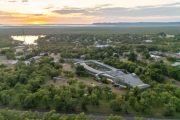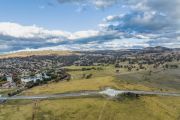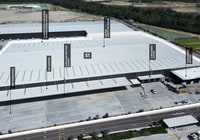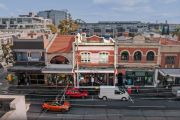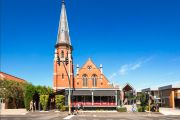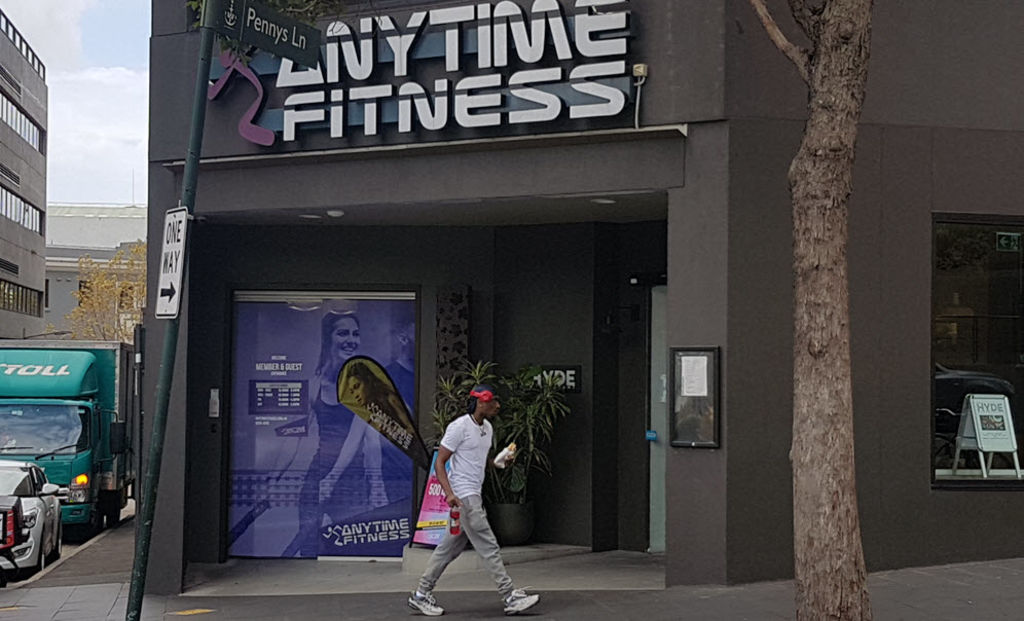
From sin city to slim city: how gyms are taking over Kings Cross
It’s gone from sin city to slim city. Once Sydney’s Kings Cross was the hub of sex, drugs and rock ‘n’ roll, now it’s the heartland of a booming health and fitness industry.
With no fewer than 13 major gyms in the small area taking over former bars, nightclubs, sex joints and gambling dens – all hard hit by the state government’s ‘lock-out laws’ – the latest is now refurbishing the old Tunnel nightclub, where Kings Cross king John Ibrahim founded his empire.
“If it wasn’t for the stupid, retrograde lock-out laws in the Cross, the Tunnel and other great nightclubs would still be going strong,” said Ibrahim, who owned the premises from 1988 to 2014.
“But you can’t live in the past and the idea that people will still be in there, working up a sweat, makes me smile.”
The former Tunnel premises behind Kings Cross station on Earl Place – complete with the bullet holes in the front wall from a drive-by shooting – are now undergoing a new fitout at the hands of US gym giant Orangetheory Fitness, which has more than
1000 studios worldwide. Kings Cross is its latest Australian venue.
One of the three owners of the franchise, Craig Hale, sees Kings Cross as a great location for more gyms. “It’s all about high-density living, and a demographic where a lot of people prioritise health and fitness,” he said.
“There’s also a lot of change happening in the area which has definitely opened up more commercial tenancies of the right size suitable for fitness operations, and commercial landlords are now seeing us as reliable, viable and sustainable tenants.
“It’s sad, in some ways, to see the area changing as a result of the lock-out laws, but we are also trying to respect its history.” The gym will open mid-autumn but the bullet holes, he says, will remain.
Another major US gym network Barry’s Bootcamp – a favourite of football star David Beckham – is also setting up in Kings Cross, taking over the former pub Mansions Hotel on Bayswater Road.
Head of Australian operations and former commando Heaton Russell is coy, however, about the huge refurb underway. “People don’t know about that yet,” he said. “We haven’t announced it. No comment.”
But those gyms will soon join other big chains such as Fitness First, Anytime Fitness and F45, and a whole legion of more specialised studios like RE:UNION, Boxing Works, A Squad Called Savage, Up Cycle, P.E. Dept and, muscling in on neighbouring William Street, gyms like Lord of the Rig, Vision Personal Training and The Workout Club.
Then there are nine dedicated yoga and Pilates studios, as well as the more eclectic outfits like Inpuls Studio where electro-muscular stimulation is used in place of a hard physical workout. But the sex industry isn’t missing out totally. It’s adapting to the new gym boom with a new ‘Sexological Bodywork’ studio that’s just opened.
“With so much residential development going on in the area, the population has increased but we don’t have those huge spaces with parking attached that they have in the suburbs for gyms,” said leading Australian group fitness instructor and personal trainer Shannon Cleary, who is based in Kings Cross. “So we see a lot of smaller boutique gyms come up instead.
“And this is an area with a lot of singles so in place of going to bars to socialise like they used to, a lot of people are now finding a new community in the gyms. There’s also a big gay community in the area who tend to be more focused on body image.”
The City of Sydney estimates that Kings Cross has a population density of 289.49 people per hectare, the second most dense in Australia behind Pyrmont. ABS statistics show only 18 per cent of those are families, and the median age is between 20 and 39 – perfect gym fodder.
The fitness industry in Australia is now worth $2.2 billion, according to international market research company IBISWorld, and fitness-centre revenues are predicted to grow at an annualised 1.8 per cent over the half decade through to 2022-2023, to reach $2.4 billion. It’s being driven, says its latest report, Gyms and Fitness Centres in Australia, by the emergence of budget 24-hour gyms, rising health consciousness and high obesity levels.
In Kings Cross, where once when you saw a man running down the street you’d look to see who was chasing him – cops or crooks – now there are hordes running in lycra.
“There are quite a few gyms in the area obviously,” said LJ Hooker commercial sales and leasing executive Jonathon Regan. “And not many seem to be shutting down, so there’s obviously a demand and it’s convenient with the train station there so people can train on their way to work.”
One gym did close in the area, Snap Fitness, but the space was immediately taken over by Luke Istomin, one of the founders of F45 who’s started up the small-group, yoga-inspired strength and conditioning gym RE:UNION.
“The group fitness experience is really valuable as many people have lost the art of interacting with each other, so the gym becomes their second family,” he said.
“That’s while the whole group training model is on the up and up. Lots of people in this area also work from home, so it’s good to go to a place where they feel welcome and can forge friendships with the people they work out next to.”
The development of Kings Cross as a health and fitness hub is exactly what’s happening in similar areas of New York, Hell’s Kitchen, and London’s Soho, undergoing rapid gentrification, believes Carrington Brigham, executive chair of the local chamber of commerce, the Potts Point Partnership Kings Cross & City Edge.
“High density areas are changing and transforming in a way that’s probably positive for the community, promoting an active lifestyle and a diversity of ways to get themselves fit,” he said. “Nightclubs aren’t needed so much anymore as places to meet other people as the internet is replacing bricks and mortar.”




